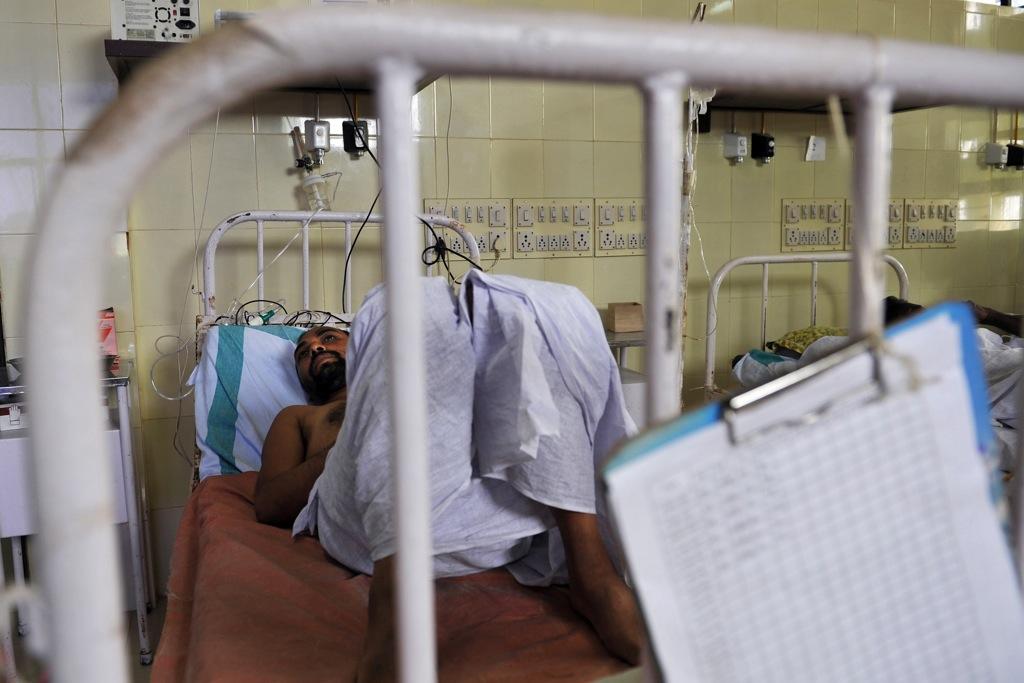India: 1 in 4 patients in Indian ICUs suffer severe sepsis
Raghavendra, a 34 year-old victim of the Shabrlimalai stampede lies in a bed at the Surgery Intensive Care Unit (ICU) of the Kottayam Government Hospital in Kottayam, India. One in 4 patients in Indian ICUs suffer severe sepsis, according to a new study of Indian hospital procedures.
One out of four patients in Indian intensive care units suffer from sepsis–a life-threatening reaction to bacteria and other germs–and nearly half of those patients die as a result, according to a new study of Indian hospital procedures.
According to a nationwide study of Indian Intensive Care Case Mix and Practice Patterns (INDICAPS), "the reasons for the rising incidence could be poor hospital hygiene, abuse of antibiotics or rampant self-medication, the Times of India reported.
The study revealed that 26 percent of the patients in ICUs contracted sepsis, and 42.2% of those patients died, comparied with 17.8 percent for ICU patients who did not contract sepsis, the article said. Nearly a third of the patients who developed sepsis in the ICU did not undergo surgery.
Though sepsis, which occurs when bacteria make toxins that cause the immune system to attack the body's own organs and tissues, is a growing problem worldwide, Indian hospitals (as well as doctors and pharmacists) have faced repeated criticism for poor hygiene and the overprescription of anti-biotics.
Last year, the UK's Lancet medical journal raised hackles here when a team of researchers nicknamed an anti-biotic resistant "superbug" after New Delhi — where, to be fair, it appears to have originated in the public water supply used for drinking, washing and cooking, according to another Times of India report.
And the city of Chennai was recently spurred to an all-out drive to remove rats and dogs from hospital premises after rodents disfigured the corpse of an infant girl who died in a hospital incubator, according to the Hindu and all of the other dailies, naturally. (Notably, this was not the first rat-eating incident reported at an Indian hospital.)
The good news?
Rat and dog catchers reportedly trapped some 600 rats and captured 25 dogs on the first day of the cleanup drive.
The story you just read is accessible and free to all because thousands of listeners and readers contribute to our nonprofit newsroom. We go deep to bring you the human-centered international reporting that you know you can trust. To do this work and to do it well, we rely on the support of our listeners. If you appreciated our coverage this year, if there was a story that made you pause or a song that moved you, would you consider making a gift to sustain our work through 2024 and beyond?
